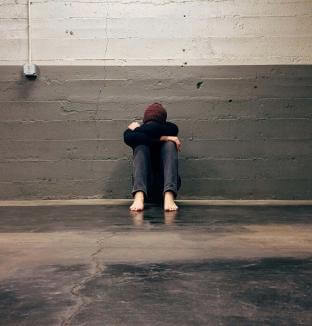Rehabilitation, a physical and mental challenge
After an accident or serious illness, rehabilitation is not just about physical recovery. In addition to fatigue, pain and loss of independence, patients in medical and rehabilitation care also have to deal with psychological vulnerability. Their motivation, but also the role of their families and carers, are essential levers for overcoming obstacles and regaining momentum.
Life stories
Post-acute and rehabilitation hospitals take in patients affected by a wide range of conditions, some of them severe, for one or two months: cancer, chronic illnesses, accidents, trauma, age-related cognitive disorders, etc. In these situations, rehabilitation can be long and trying, and can be experienced as a brutal break with everyday life. "Many people arrive weakened, with a life history already marked by fragility or trauma, and some socially isolated. Most of them need psychological support," says Gabriel Oksenberg, clinical psychologist in the psychology department at emeis headquarters, after eight years of supporting patients in rehabilitation clinics.
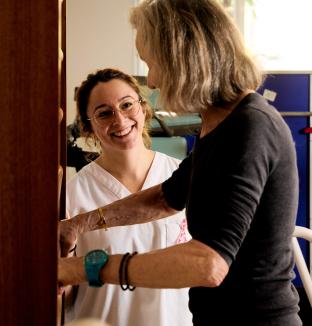
Repairing the body, strengthening the mind
Patient involvement in their rehabilitation is often cited as a key factor in success. But can we really expect a frail person to be motivated from the outset? "Motivation cannot be decreed; it is built up over time," explains Gabriel Oksenberg. "Some patients arrive in a state of shock and can no longer think. Others, who are highly motivated at the outset, realise that progress is slower than expected. Sometimes the relatives of a highly dependent patient are very annoyed or worried about the person's lack of motivation. You have to be able to accept all emotional states, without trivialising them".
The psychologist insists on the need to respect the patient's psychological defences, doubts and moments of weakness. "The most important thing is to take the time to listen, to reassure and to validate their feelings, even if they seem disproportionate.”

A day with Thomas, physiotherapist at the Asnières clinic (France)
French Youtubeur Ludovic B met Thomas, a physiotherapist at the Centre de Rééducation Fonctionnelle Paris Nord in Asnières (near Paris). He spent a day at his side, discovering the wide range of his interventions, the pathologies of his patients and what drives him on a daily basis. Let's go !
Personalised support for each
During the stay, you can identify warning signs and suggest appropriate treatment. Sudden changes in behaviour, sleep disturbances, appetite problems, irritability, ruminations or excessive guilt are all indicators of psychological suffering.
Psychological support tools vary according to the situation: individual interviews, discussion groups between patients, mediation groups (using therapeutic writing, for example). "The group effect is often beneficial for self-esteem. Talking about what you've been through, feeling understood and supported by your peers, can be a real lever," stresses Gabriel Oksenberg. Some psychologists also use specific approaches such as EMDR (eye movement therapy to help the brain process traumatic memories) or hypnosis.
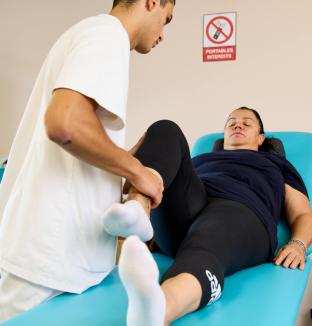
The importance of support from loved ones
When relatives are present, their role is often decisive in the rehabilitation process. "They offer invaluable emotional support and continuity. Conversely, patients who are isolated have fewer resources to cope with the ordeal," explains Gabriel Oksenberg.
All that remains is to find the right place for them. "Some people manage to support their loved one by being present. Conversely, others interfere in the therapeutic process, projecting their expectations without perceiving the patient's actual condition.” That's why it's so important for teams to meet families, establish a dialogue and support them.
When it comes to delicate decisions, such as referral to a retirement home or end-of-life care, this collaboration becomes essential.
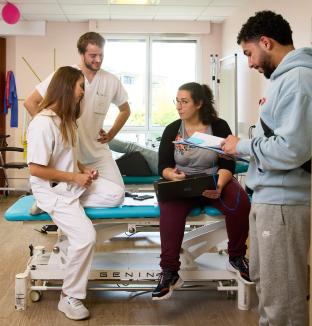
A collective and coordinated approach
The psychological dimension is inseparable from physical care. "Each professional, whether or not they are at ease with psychology, has their own viewpoint. Weekly multidisciplinary meetings enable us to pool our observations of the patient, cross-reference our approaches and adapt what we tell the patient.”
A patient who is aggressive when being groomed, another who refuses to eat: behind these behaviours sometimes lie painful memories or moral distress. "The role of the psychologist is to give meaning, to support colleagues in their psychological reading, and even to take on board their anxiety," explains Gabriel Oksenberg.

Restoring confidence, step by step
Finally, what do you say to a patient who is starting rehabilitation and doubts his ability to recover? "The message we give them is simple: they arrive in a safe space where they will be listened to and understood. After going through difficult times with their illness or accident, it's normal for them to have doubts. We're going to take the time to listen to them and adapt to them. We're going to work on his doubts and his self-esteem. He has the right to doubt, but we don't doubt.”
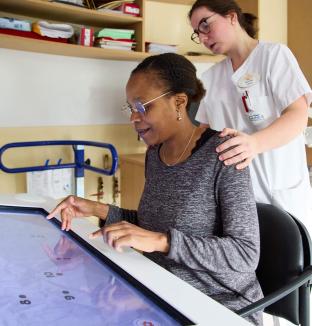
To continue reading...
We've selected these two articles for you to find out more about care at emeis, our expertise and our caregivers' viewpoints. Enjoy your reading!



